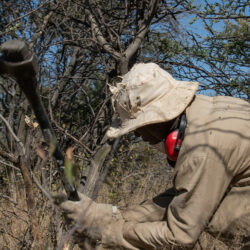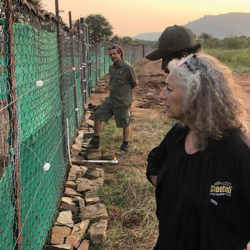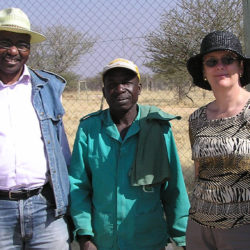Featured Staff – Natasha Bornman – Veterinarian
-
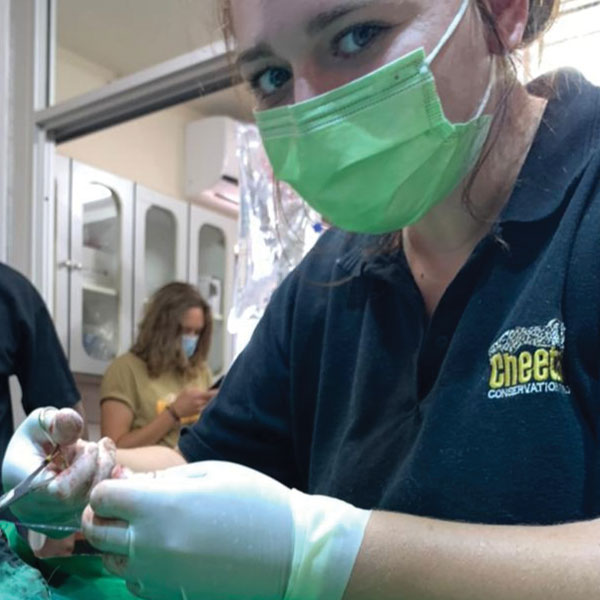
- by Natasha Bornman October 4, 2021
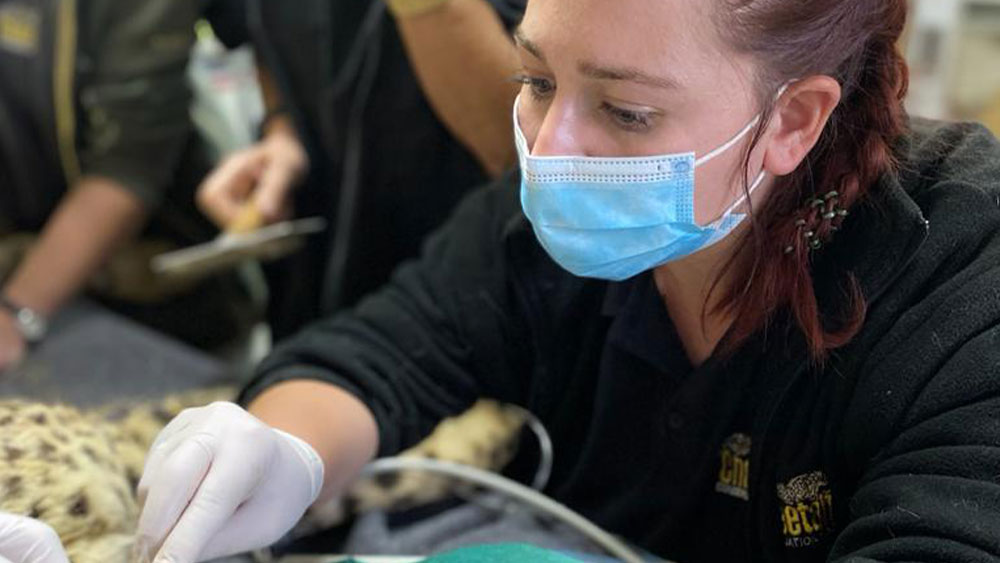
I am a proud Afrikaans-speaking, fifth generation Namibian. I grew up in Otjiwarongo, otherwise known, as the cheetah capital of the world. Namibia is a small third world country, with many droughts and is far from perfect, but for me it was the best place to grow up. Local animal auctions and church gatherings were normal and walking barefoot was a luxury. School and church camps were always on someone’s farm, with children playing in the mud, swimming in a dam and just enjoying nature.
Growing up with such a variety of animals, namely domestic animals, livestock, and wildlife, I decided to become a veterinarian when I was in high school. I made this life changing decision in a very peculiar way. I was assisting the state veterinarian operate on our sick bull on our family farm, and I suddenly realized this is what I wanted to do with the rest of my life. I want to help animals, whether it is treating a wound, performing a surgery, or doing my small part for conservation. I was then fortunate to attend the School of Veterinary Medicine at the University of Namibia, from 2015-2021. What made the vet school so special, was that we had three semesters of wildlife clinical studies, where we focused extensively on human-wildlife conflict, wildlife immobilization and different capturing methods in case wildlife had to be moved. This was where my love for wildlife and conservation bloomed.
Human wildlife conflict has always been a problem and most Namibians will experience it at some point in their lives, whether it’s a rapid kudu in your backyard, a jackal catching your lambs or a leopard catching calves. Therefore, from a young age my parents taught me that we need to work together with nature and killing all predators that pose a risk to your livestock, is not the answer to our problems. We had Nguni cattle, which have big horns, to protect their calves from predators and we had a sheep herder that would take the flock out twice a day and return them to the kraal every night. We are also very fortunate to now have Ugab, an Anatolian shepherd dog, as a livestock guarding dog. He was named after the Ugab River, a periodic river which flows through my family’s farm in the Kunene region.

Ugab is a lovely dog, he goes out with the flock twice daily. There has been two occasions where he has made us very proud. Once when he stayed behind in the veld with an ewe that just given birth and protected both the ewe and lamb, as they were too weak to keep up with the rest of the flock. And recently was when our farm burned down due to catastrophic veld fires, and he stayed with the flock until my father could get them to safety. The Cheetah Conservation Fund’s Livestock Guarding Dog program is really a terrific contribution to the conservation of cheetahs, because together with teaching improved farming methods, and the guarding dogs who guard the flock to prevent predators from killing members of the flock, is helping to prevent farmers/farm workers from killing the already endangered cheetahs.
Speaking of the cheetah, what a beautifully unique animal. I was overjoyed when I got the opportunity to be a veterinarian at CCF and working with all the different animals, namely goats, sheep, cattle, horses, dogs, and off course the most special, the cheetah. Since I started working here, I have been part of cheetah releases and many general health check-ups on resident and wild cheetahs. I have had the privilege to also perform two different surgeries on two different cheetahs (see photo at the top of this post), which enabled them to be released back into the wild. I have never been prouder to have been a part of something, like the day when the cheetahs were released back into the wild. Being a veterinarian at CCF is an amazing experience. It is just so extremely special to be able to help the resident and wild cheetahs and to be a part of something bigger, which is the ongoing fight to preserve this endangered species. Save the cheetah!
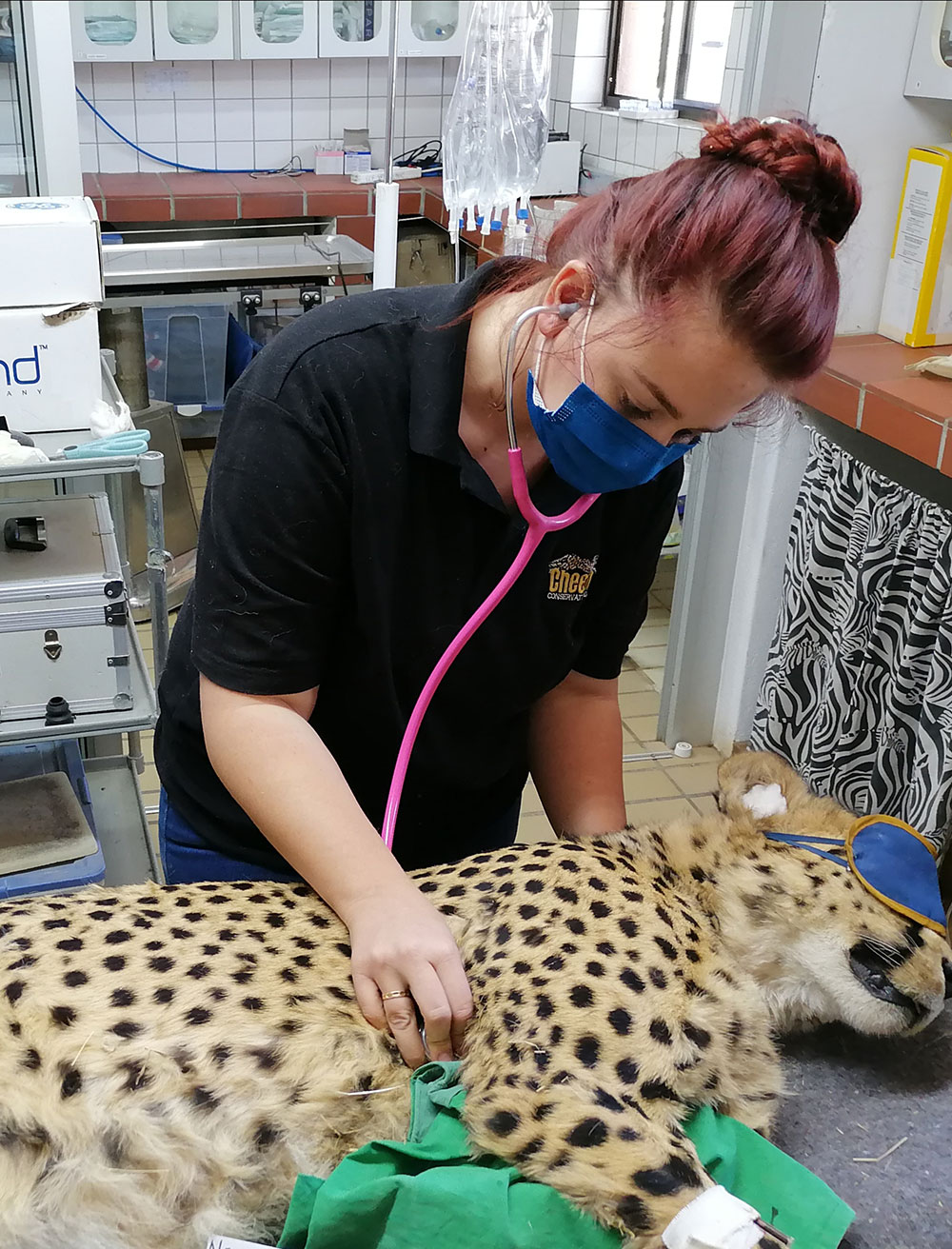
Related Reading
-
April 3, 2023
Clearing the Land for Cheetahs -
October 4, 2022
Veterinary Work at CCF Needs Your Support -
August 11, 2022
Memorial for Jane Katjavivi

